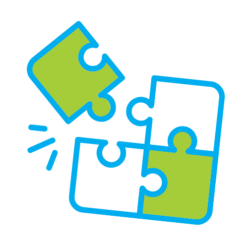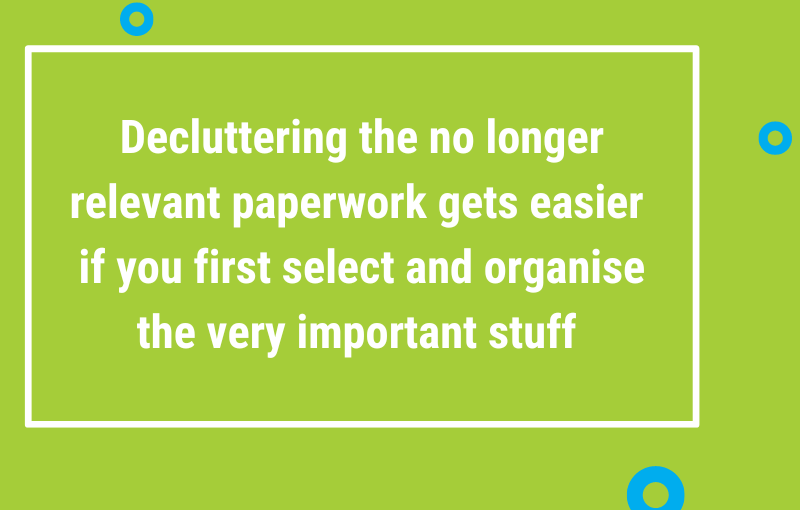Why my approach prioritises organising over decluttering.
Let’s review the three core principles of the Radical Paperwork Optimisation Approach, which I introduced in a recent article. (Read here.)
Here they are again:
-
- We focus radically. – We focus our attention on what’s very important to us now and in the future.
- We organise radically. – We organise only what’s very important. In a simple way, in one place.
- We declutter radically. – We declutter everything that’s not very important (any longer). ALL of it.
You might have wondered why we first radically organise before we radically declutter.
That’s not the typical order recommended in the professional organising world.
Organising experts usually advise decluttering first before organising what you want to keep.
For example, if you want to reorganise your clothes, you first remove everything from the wardrobe, then declutter the clothes that no longer fit or are damaged and all the pieces you don’t like and never wear. Then, you take the remaining clothes and reorganise them in your wardrobe.
I suggest and apply this approach myself for most categories of belongings.
However, I propose a different approach when it comes to personal paperwork and information.
This is why I strongly encourage organising first and decluttering second:
When organising personal paperwork, the primary focus should be on identifying and organising the documents and information that are most important now and in the future.
This ‘Radical Paperwork Optimisation’ approach prioritises what is truly essential now and disregards the rest.
Many people keep a lot of old paperwork and information that was important in the past but isn’t relevant to their lives now.
Only a small part of what has been accumulated over the years is still very important and needs to be organised efficiently.
This means that if we start our optimisation process by paying attention to and collecting only the very important papers and information, we will not be confronted with all the accumulated paperwork at once.
Instead, we can focus on a smaller part of our paperwork and information and take time to organise it carefully and efficiently.
As soon as this is done, it’s much easier to let go of the rest: The much bigger part of our paperwork/information that is no longer relevant or needed.
That’s because letting go of personal stuff and information is no longer so difficult and emotional if we can trust that the very important parts have already been sorted out and safely stored away.
The Radical Paperwork Optimisation Process can help you create and enjoy a better-organised and more relaxed daily life.
My article series, ‘Radical Paperwork Optimisation and the VIP Directory’, provides you with all the information and tools you need to start and complete the process successfully.

